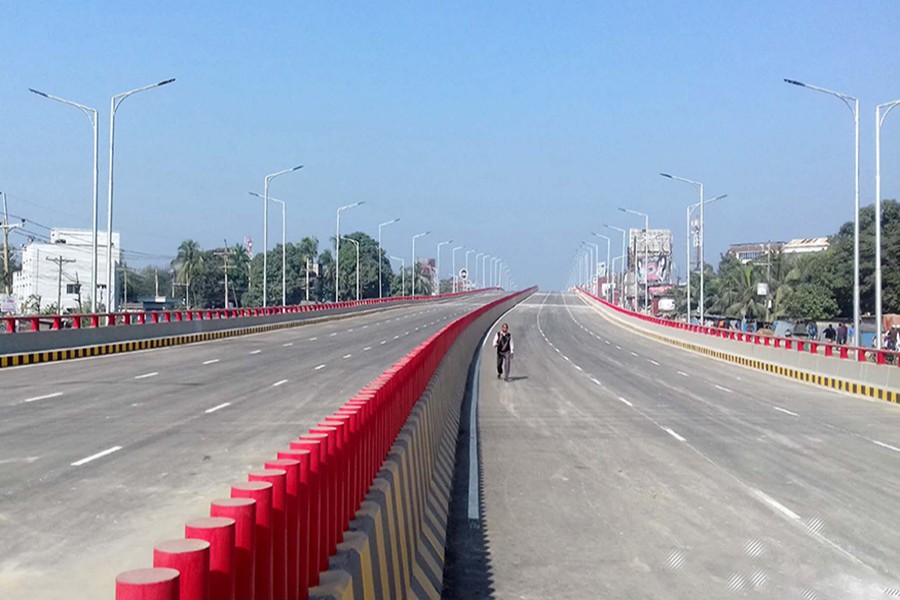Learning by experience of time-and-cost overruns in public works, the government is now adopting a new modality of ensuring the hiring of qualified and competent firms mainly for road sector mega-projects.
Sources familiar with the process said the change is prompted by bitter experiences of unexpected delay, and hence cost overrun, in completing different projects with quality of works.
They said Roads and Highways Department (RHD) and other road sector agencies under the Ministry of Road Transport and Bridges had already begun applying the least-cost-combination method (LCCM) in awarding the bridge-and road-construction works.
Projects on construction of Kanchpur, Meghna and Meghna Gumti (KMG) bridges came first in the methodology switch.
Though the method has so far been used in the projects funded by Japan International Cooperation Agency (JICA), sources said, the MoRTB also used it in the SASEC (South Asia Sub-regional Economic Cooperation) project, financed by the Asian Development Bank (ADB).
Dhaka Mass Transit Company Limited (DMTCL), the executing state-owned agency for constructing metro rails in the capital, follows suit. It has also started evaluating the offers of the participating bidders for its last package under the LCCM
Though the DMTCL selected contractors for its six other components of works, officials said, the new method is to ensure selection of a qualified and competent company for constructing the rest 10.1 kilometres of the elevated infrastructure of the metro named Mass Rapid Transit Line 6 (MRT-6).
DMTCL Managing Director MAN Siddique said as per the JICA guidelines, the method is being followed in selecting contractors for the packages 5 and 6.
"This will ensure selection of a competent contractor by evaluating both technical and financial offers through assessing the company's capacity in all aspects, including its ability to work in new project after getting works in other big projects in the country," he said.
DMTCL has so far applied two-stage method under the public procurement rules (PPR) to select the bidders both technically and financially sound for its six packages, including depot land-development work, depot infrastructure development and rolling stock.
LCCM is a method which guides authorities concerned in selecting the lowest-bid-offering firms by evaluating financial capacity of the firms along with their ability to carry out the works with all aspects including expertise, technology and manpower.
MoRTB officials said RHD has long been criticised for selecting contractors following PPR whose performances were later found very poor.
For this, not only the project construction work was delayed for unlimited period but also quality was, sometimes, not ensured. Cost of the project also "escalated multifold".
The government faces problems in implementing many important projects in time for awarding companies with their lowest offers. The laggard ones included Dhaka-Chittagong highway four-lane project.
However, officials of different government agencies, including Economic Relations Division, said development partners adopt their guidelines to select contractors "of their own ways".
As in recent days, Chinese and Indian firms dominated in getting the country's different projects, including the JICA-funded infrastructure- development projects, they said the LCCM ensures getting qualified and competent contractors from other countries. JICA has also this guideline for outsourcing.
China follows direct-procurement method to select Chinese companies by them for its government-funded big projects.
But in the case of Chinese-funded small projects, the government agencies apply limited-tender method under PPR. Under this method, China recommends names of some Chinese firms from which one is selected through two-envelope process.
Under the Indian Line of Credit (LoC), only Indian firms can apply for the work contract.
But other development partners (a euphemism for donor), including the World Bank and the ADB, go by their respective guidelines. In the MRT line-6 project, excepting depot land-development work and rolling-stock work which is to manufacture train sets, firms other than Japanese won the works.


